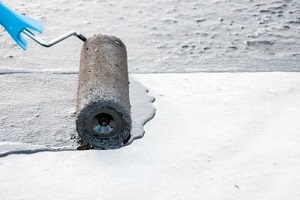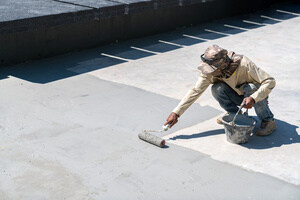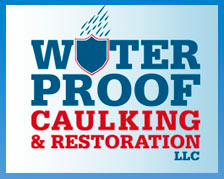 Wisdom says an ounce of prevention is better than a pound of cure. When taking care of a commercial building, owners have much on their plate regarding maintenance.
Wisdom says an ounce of prevention is better than a pound of cure. When taking care of a commercial building, owners have much on their plate regarding maintenance.
Getting ahead of problems can save time and money, but it is not always clear where to look for issues. Some problems grow in silence, only revealing themselves after substantial damage.
Commercial waterproofing is an often overlooked but highly useful place to start for building owners looking to invest in the longevity and integrity of their structures in Delaware.
Waterproofing is a nuanced task that is best left to the professionals. It is an investment that stands the test of time and keeps buildings safe from moisture-related degradation.
Here is an overview of the many problems caused by water, the preventive power of commercial waterproofing, and what it can do for your structure.
The Problems Caused by Water
To understand why commercial waterproofing is so important in Delaware, the first step is to learn about the many problems water can cause.
What often comes to mind first is direct water damage—when water leaks in and creates wet spots, stains, and a musty smell. This can make an area uncomfortable for employees and customers to work in or visit.
Additionally, this moisture may rot the wooden components of the building, such as the scaffolding that supports its structure and weight.
Behind these moist walls lies another invisible problem: mold. In many cases, mold in commercial buildings goes unnoticed for years until it blooms into a full-blown invasion that destroys walls and threatens the health of the humans inside.
Mold can cause allergic symptoms in people and may even embed itself into the nasal passageways of visitors or employees.
From there, it can grow until it causes a severe infection or, in the worst cases, infiltrates into the brain. A little moisture seeping in from the outside can have wide-reaching effects.
Another challenge caused by water is damage to the building during the freeze-thaw cycle. As water expands and contracts during temperature changes, it can force apart bricks and masonry, creating ever-widening gaps.
This lets out climate-controlled interior air, raising energy bills, and can turn a small crack into a collapsed section of wall very quickly.
For all these reasons, stopping water from intruding into a building is essential. Because Delaware sees such a wide range of moist weather, from heavy rain to deep snow, commercial buildings that invest in waterproofing last much longer than their peers.
Waterproofing Options
When it comes to waterproofing, trustworthy experts must examine a building to determine which type of application is best suited for that structure’s particular strengths and challenges. Some of the most common waterproofing options include:
Membranes – Form-fitting membranes can be applied to the exterior of a structure. They cling to the nooks and crannies in the building’s surface, creating a physical shield that prevents moisture from being sucked into the capillaries of bricks and other materials.
These membranes are permeable to some extent, which is good — internal humidity can still escape the building while external moisture finds no way in. Without permeability, a waterproofing membrane would hold internal moisture against the most vulnerable parts of a building.
Coatings – Many waterproof coatings are easily sprayed onto external materials to create a water-resistant seal. These materials can also stop UV rays from reaching the building’s surface, which slows down the wear and tear that the structure’s materials experience. This prolongs the life of the building and reduces repair costs over time.
 Inherent Resistance – Building owners choosing to be as proactive as possible with waterproofing can do well to build their structures with waterproof materials from the start. Some types of concrete, for example, are made with a different chemical matrix that naturally repels water.
Inherent Resistance – Building owners choosing to be as proactive as possible with waterproofing can do well to build their structures with waterproof materials from the start. Some types of concrete, for example, are made with a different chemical matrix that naturally repels water.
This means that the concrete itself is waterproof without further coatings or membranes. Any damage to the concrete will not impact the waterproof nature of the material, unlike with membranes and other options that could be compromised if an area suffers severe damage.
Get Delaware Commercial Waterproofing from the Experts
No matter what stage of your building’s life cycle you are currently in, there is an appropriate waterproofing option to protect the structure against water infiltration.
The experts at Waterproof Caulking & Restoration have years of experience assisting Delaware businesses with their waterproofing needs according to their budget and without disrupting operations.
Contact Waterproof Caulking & Restoration to schedule an appointment so that a professional can examine your building and provide a customized plan for keeping the water out.
